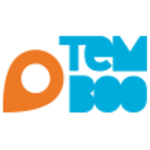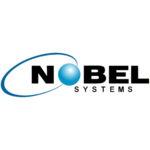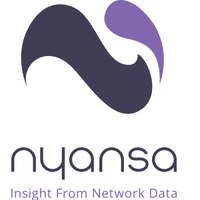Description

Bridgera IoT

Temboo
Comprehensive Overview: Bridgera IoT vs Temboo
Bridgera IoT and Temboo Comprehensive Overview
a) Primary Functions and Target Markets
Bridgera IoT:
- Primary Functions: Bridgera IoT is a customizable IoT (Internet of Things) platform designed to offer end-to-end solutions for connecting and managing IoT devices. Its main functionalities include data collection, real-time monitoring, analytics, and visualization. The platform is highly flexible and can be tailored to meet specific business needs, supporting bespoke dashboards, alerts, and reporting. Additionally, Bridgera IoT emphasizes integration with existing systems and seamless data handling from multiple sources.
- Target Markets: Bridgera predominantly targets industries such as healthcare, logistics, smart cities, and industrial automation. The platform is ideal for businesses seeking custom IoT solutions that demand high reliability and specific industry-oriented adjustments.
Temboo:
- Primary Functions: Temboo is a versatile platform that focuses on simplifying IoT application development by providing a comprehensive suite of tools and software libraries. It helps developers automate tasks and create IoT solutions by connecting APIs, generating code snippets, and handling complex workflows. Temboo's core functionality lies in enabling developers to integrate IoT devices with cloud-based services effortlessly.
- Target Markets: Temboo primarily appeals to developers and businesses in sectors such as agriculture, environmental monitoring, and smart manufacturing. It is particularly advantageous for organizations seeking to reduce development time and leverage existing cloud infrastructure for IoT implementations.
b) Market Share and User Base
Bridgera IoT:
- Bridgera IoT caters to a niche market that demands highly customized IoT solutions, which means its market share may be smaller when compared to larger, more generic platforms dominating the IoT space. However, Bridgera’s appeal lies in its ability to offer tailored solutions, which has led to a loyal user base in industries where customization and system integration are crucial.
Temboo:
- Temboo, being developer-centric, may have broader market reach among SMEs and independent developers looking for efficient ways to implement IoT solutions. While it may not compete head-to-head with leading IoT platforms in terms of market share, its distinct approach to aiding the development process has secured a significant and diverse user base looking for plug-and-play IoT solutions.
c) Key Differentiating Factors
Customization vs. Ease of Use:
- Bridgera IoT sets itself apart with its focus on customization and industry-specific adaptations, making it highly attractive for enterprises with unique needs. Its strength lies in providing a tailored IoT environment that integrates seamlessly with existing business operations.
- Temboo differentiates itself by simplifying the development process, offering a user-friendly interface and pre-built resources for developers. It excels in scenarios where rapid prototyping and ease of use are more critical than highly customized solutions.
Integration and Flexibility:
- Bridgera offers deep integration capabilities, allowing it to merge with complex legacy systems, which is crucial for sectors such as healthcare and logistics that often require adherence to strict standards and interoperability.
- Temboo provides flexibility through its automation tools and code generation, enabling users to quickly connect devices to cloud services without extensive coding or technical expertise.
Target Industry Focus:
- Bridgera's industry-focused solutions cater to specific verticals that benefit from bespoke IoT implementations, whereas Temboo is more horizontally aligned, appealing to a wider range of industries with its adaptability and ease of deployment.
Overall, both Bridgera IoT and Temboo serve important niches within the IoT landscape. Bridgera's strength lies in customization and integration, making it suitable for enterprises with specific requirements, while Temboo offers an accessible development platform that accelerates IoT application creation by simplifying the integration of devices and cloud services.
Contact Info

Year founded :
Not Available
Not Available
Not Available
Not Available
Not Available

Year founded :
2013
+1 212-274-8555
Not Available
United States
http://www.linkedin.com/company/temboo-inc-
Feature Similarity Breakdown: Bridgera IoT, Temboo
Bridgera IoT and Temboo are both platforms that facilitate Internet of Things (IoT) solutions, but they have different focuses, feature sets, and user interfaces. Here's a breakdown of their similarities and differences:
a) Core Features in Common:
-
IoT Device Connectivity: Both platforms offer services for connecting IoT devices to gather and transmit data. They support standard IoT protocols and provide tools for managing device connectivity.
-
Data Management: Bridgera IoT and Temboo both include features for collecting, storing, and managing data generated by IoT devices. They provide solutions for handling data streams and maintaining operational data integrity.
-
APIs and Integration: Both platforms emphasize integration, providing APIs and libraries that allow communication between IoT devices and other software systems. This is crucial for building connected applications.
-
Automation and Workflows: Both offer automation capabilities. Users can set up rules and workflows to automate responses to data inputs or changes in device states.
-
Scalability: Both solutions are designed to scale with the number of devices and amount of data, supporting IoT deployments from small projects to large enterprise systems.
b) User Interfaces Comparison:
-
Bridgera IoT: Bridgera offers a customizable dashboard tailored to specific user needs. It emphasizes user-friendly data visualization tools and real-time monitoring capabilities. The interface is designed to be intuitive so users can quickly adapt and utilize it without extensive training.
-
Temboo: Temboo's interface is more developer-focused, offering a command line interface along with web-based tools for creating and deploying IoT solutions. It provides a range of templates and examples that are particularly useful for prototyping and testing.
c) Unique Features:
-
Bridgera IoT Unique Features:
- Custom Application Development: Bridgera IoT provides services for custom application development, meaning businesses can work directly with Bridgera's team to develop applications tailored to their specific needs.
- End-to-End Solutions: Bridgera offers more end-to-end IoT solutions, focusing on the specific needs of an enterprise with complete IoT development, implementation, and support services.
- Focus on Data Security: With a strong emphasis on data security, Bridgera IoT provides advanced data protection mechanisms suitable for industries with stringent security requirements.
-
Temboo Unique Features:
- Choreo Library: Temboo features a library called Choreos, which are pre-built processes and code snippets that can be used to connect and interact with cloud services and APIs, significantly speeding up development.
- Environment Variables: Temboo allows developers to manage environmental variables in a way that helps to keep sensitive information secure across multiple deployments.
- Broad Language Support: It supports a wide array of programming languages for generating code snippets, like Python, Java, Arduino, and others. This flexibility is beneficial for developers working in diverse coding environments.
Each platform offers strengths depending on the user's specific IoT needs, development environment, and preference for customization versus ready-made solutions.
Features

Device Management
Data Analytics
Integration Capabilities
Security Features
Data Analytics and Reporting
Real-Time Device Monitoring

Enhanced Workflow Automation
User-Friendly Interface
Comprehensive Support
Security and Reliability
Best Fit Use Cases: Bridgera IoT, Temboo
Bridgera IoT and Temboo are both platforms that support developing and deploying IoT solutions, but they cater to different use cases, industries, and company sizes.
Bridgera IoT
a) Best Fit Use Cases
- Enterprise-Level Projects: Bridgera IoT is well-suited for enterprises and larger organizations that require customizable, end-to-end IoT solutions. This platform can handle complex, large-scale deployments with a need for robust data management and analytics.
- Custom IoT Solutions: Businesses needing highly tailored solutions benefit from Bridgera IoT's flexibility in customizing IoT applications and dashboards to meet specific operational needs.
- Industries with High Data Volume: Industries like healthcare, logistics, and manufacturing, which generate large amounts of data and require real-time monitoring and analytics, are ideal candidates. Bridgera IoT's strong capabilities in data processing and management help these sectors efficiently utilize IoT data.
d) Industry Verticals or Company Sizes
- Healthcare: Custom solutions for patient monitoring and telemedicine.
- Logistics and Supply Chain: Asset tracking and fleet management.
- Manufacturing: Industrial IoT for predictive maintenance and process automation.
- Scale: Bridgera IoT mainly targets medium to large businesses that have the resources and need for comprehensive, integrated IoT solutions.
Temboo
b) Preferred Use Cases
- Developers and Small to Medium Businesses (SMBs): Temboo is designed to empower developers and small to mid-sized companies by offering tools that make it easier to integrate IoT functionality into existing applications.
- Rapid Prototyping and Deployment: Ideal for projects that require quick setup, experimentation, and deployment without the need for extensive customization.
- Cross-Platform Integration: Temboo's strengths lie in connecting IoT devices with cloud services and third-party APIs, which is ideal for businesses looking to integrate IoT data into larger digital ecosystems.
d) Industry Verticals or Company Sizes
- Agriculture: Quick IoT integrations for monitoring and automating farming operations.
- Smart Cities and Environmental Monitoring: Solutions for air quality monitoring, waste management, and other municipal applications.
- Research and Education: Institutions that need easily deployable IoT solutions for research purposes.
- Scale: Temboo is more suited for small to medium-sized enterprises and startups looking for cost-effective, scalable IoT integration options.
In essence, Bridgera IoT is targeted more towards businesses requiring highly customized, large-scale IoT deployments with a focus on data analytics and management across industries requiring intensive data utilization. In contrast, Temboo is ideal for developers and smaller businesses needing quick, flexible integrations with a variety of digital platforms, supporting rapid development and deployment in less data-intensive use cases.
Pricing

Pricing Not Available

Pricing Not Available
Metrics History
Metrics History
Comparing teamSize across companies
Conclusion & Final Verdict: Bridgera IoT vs Temboo
To determine the best overall value between Bridgera IoT and Temboo, it is important to consider the unique strengths and limitations of each platform, as well as specific user needs.
Conclusion and Final Verdict
a) Best Overall Value:
The "best overall value" depends on several factors, including the specific use case, budget, existing infrastructure, and development requirements. Both Bridgera IoT and Temboo offer distinct value propositions:
-
Bridgera IoT tends to be more suitable for businesses looking for a highly customizable and integrated IoT platform. Its strength lies in providing tailored IoT solutions that can be adjusted to meet specific business requirements, offering substantial value for enterprises with complex or unique IoT needs.
-
Temboo is often better suited for organizations or developers seeking rapid deployment with broad hardware compatibility and no-code or low-code development capabilities. It's ideal for smaller projects or those with limited development resources.
Given these points, Bridgera IoT might offer better value for larger enterprises or projects needing deep integration and customization, while Temboo could be better for quick, diverse, and lower-cost implementations.
b) Pros and Cons:
Bridgera IoT:
- Pros:
- Highly customizable and flexible for specific enterprise needs
- Strong integration capabilities with existing IT infrastructure
- Scalability for large IoT deployments
- Cons:
- May require more upfront development time and cost
- Potentially more complex to set up and manage without proper technical expertise
Temboo:
- Pros:
- User-friendly with support for no-code/low-code environments
- Wide compatibility with various hardware and APIs
- Facilitates rapid prototyping and deployment
- Cons:
- May not provide the level of customization some complex projects require
- Limited when it comes to deep integration needs for larger systems
c) Specific Recommendations:
-
For Enterprises with Extensive Customization Needs: Opt for Bridgera IoT. Its strong customization capabilities make it more suitable for complex or large-scale solutions where integration with existing enterprise systems is a priority.
-
For Rapid Development and Prototyping: Consider Temboo if your project requires fast iteration, diverse hardware support, and minimal coding efforts. It's particularly beneficial for startups and small businesses that need to pilot IoT solutions without heavy investment in development resources.
-
For Decision Making: Evaluate the specific business goals, technical requirements, and resource availability. Consider factors such as integration needs, future scalability, and the skill level of the team involved. It's also wise to undertake trials or pilot programs when possible to better understand how well each platform meets the particular needs of your project.
Ultimately, the choice should align with your long-term strategic goals and operational capabilities.
Add to compare
Add similar companies



